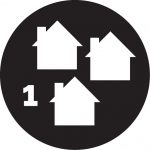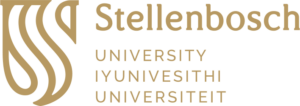Sustainable Development
at STELLENBOSCH UNIVERSITY
Sustainability contributions
SDG 10: Reduced Inequality
SDG 10
Reduced Inequality
Inequality is still a large problem globally, specifically in Africa, with South Africa having the highest Gini-coefficient in the world. Inequality restricts economic growth and access to decent employment, and it leads to increases in poverty and hunger.
Universities can aim to reduce inequalities through education in the local and regional communities and by creating opportunities for people and communities that face inequality.
SDG 10 links to poverty, hunger, and economic growth (SDGs 1, 2 and 8) and to gender equality (SDG 5). As with SDG 1, SDG 10 aligns with the AU Goal 1: A high standard of living, quality of life and wellbeing for all.

Goal 1
A high standard of living, quality of life and wellbeing for all
There are a range of programmes at Stellenbosch University that contribute towards SDG 10: Reduced Inequality and AU Goal 1: A high standard of living, quality of life and wellbeing for all. For more information, see the Division of Social Impact’s Platform for SDG 10.
Employment equity and transformation
Stellenbosch University’s Strategic Framework 2019–2024 and Vision 2040 prioritise transformation to enhance inclusivity, diversity, and equity. The Institutional Transformation Committee in the office of the Rector oversees these efforts, ensuring that policies promote inclusion and equity. Key initiatives include addressing racial equity for senior staff and students, developing transformation competencies, promoting universal access, and driving academic renewal. The Khampepe Commission Report on racial discrimination and harassment has also been addressed as part of these efforts. The Siyakhula (isiXhosa for to grow) Diversity Programme fosters equality, diversity, inclusion, and justice through seminars and events to embed the values and cultural awareness staff members need to effect change.
Creating a Welcoming and Supportive Environment
At Stellenbosch University, we are committed to fostering a welcoming and supportive campus and residential community. We help new students transition smoothly into university life through various events and programs designed to ease their adjustment. The Disability Unit plays a vital role in assisting students with disabilities, while the Welcoming Programme equips incoming students with essential life and community skills. Our Centre for Student Counselling and Development provides psychological support and counselling, and the Centre for Student Communities is dedicated to promoting diversity and social harmony.
Equality for all
The Equality Unit at SU tackles unfair discrimination, harassment, gender-based violence, and transformation to promote equity and social justice, based on our Unfair Discrimination and Harrassment Policy and the policy for equality and fairness for staff and students, including how to report unfair treatment. The Unit conducts training sessions, manages an unfair-discrimination tip-off line, and oversees a centralised reporting system.
We are also deeply committed to supporting the LGBTQIA+ community. The Equality Unit is a strong advocate for staff and students facing unjust discrimination, harassment, or gender-based violence (GBV). Their INSPIRE research, learning, and teaching facility, focused on non-violence and GBV, is housed within the Stellenbosch Gender-Based Violence (GBV) Centre, guiding research and education while supporting GBV victims.
Support for our commuter students
We recognise the unique challenges faced by commuting students, such as inadequate housing, limited access to academic resources, and insufficient transit infrastructure. We provide comprehensive support to ensure their integration, success, and well-being. The Unit for Commuter Student Communities is made up of various student communities that promote social cohesion and diversity for commuting students. These students are encouraged to participate in welcoming programmes, social impact engagements, and musical festivals. They also have access to student hubs, offering spaces for rest, study, overnight accommodation, and engagement with peers. Moreover, they can benefit from services and training on critical topics like gender-based violence, disability awareness, mental health, and informed consent.
Anti-discrimination measures
Stellenbosch University’s Admissions Policy outlines its guarantee that any admission to study at Stellenbosch University will be considered without any discrimination based on race, class, origin, gender, sexuality, or disability. The policy also addresses the University’s positive discrimination practices.
Students with Disabilities.
Stellenbosch University and the Disability Unit are committed to the success of its students, including students with disabilities. The Unit provides comprehensive support to students with disabilities, including academic assistance, tailored study materials, financial aid, and access to mental health and counselling services. It also offers training opportunities like sign language courses and staff development sessions. Additionally, the unit helps prospective students with disabilities and provides guidelines on inclusivity in the workplace and classroom. Staff members are available to assist with any questions or direct individuals to the appropriate resources.
The Disability Access Policy outlines the University’s commitment to providing these students with accessible facilities with regard to learning facilities and accommodation. In 2023, working with Facilities Management, SU upgraded more of its facilities to enhance campus accessibility, adding ramps and accessible entrances to five buildings, installing disability-friendly toilets in ten buildings, revamping lifts and evacuation chairs in two buildings, providing accessible residence rooms in eight locations, installing automatic doors in four buildings, and equipping a room in Harmonie residence with a shower chair.
